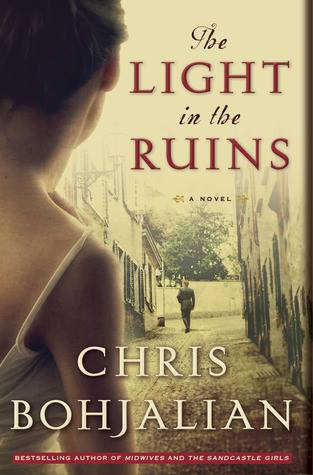In this book Bohjalian jumps back and forth in time and location as have a few other books that we have read. Francis made the point that he does not like this style. There was both agreement and disagreement with this point.
The point was raised as to why the murders were even being committed. Revenge? When the identity of the murderer is finally made (as close to the end of the book as possible) that's the apparent reason. Not everybody realized that the murderer had lost a wife and a brother (?) when the partisans were killed, and how close he felt to all of them that were killed. He blamed the Rosati family for leading the Germans to them. But why did it take 10 years for him to act?
Some members raised the point of the main character, Serafina, burning herself with matches. We discussed how and why people do that.
Francis commented on the constant smoking being done by many characters in the book. Now days, that seems so unusual!
We spent a few minutes discussing how Mussolini came to power in Italy and why. When the Italian army invaded and took control of Tunisia, Libya and Ethiopia, that was seen by some as restoring the grandeur of the Roman Empire and/or finally giving Italy its own colonies such as most other European countries had. The Italian people supported him, for the most part, as long as Italy was winning. When Italy started losing, however, most of the people turned against him. Unfortunately, Germany had easy entry into the country and the Italian people suffered tremendously because of it. Families such as the Rosatis don't really have any good choice. If they don't do what the Germans and Mussolini's 'black shirts' say, they will be killed. If they don't do what the rebellious partisans say, they'll be killed. They try to play both sides and they survive, but with major losses.
There were questions about why the Etruscan ruins were considered so valuable, and why the Nazis seemed interested in them. The book points out that the Nazis viewed the Etruscans as possibly an early Aryan race. Other than that, they were an early competitor with Rome and we still don't know a lot about them.
Other book club members sent in their opinions of the book. Here is what Margaret and Jim have to say:
"Our first impression was that the murders of two seemingly good people was exceptionally brutal. It was not until the end of the novel that we understood why Enrico Tarantola was so violent in exacting his revenge on the Rosatis.
The 1943 scenes, as Germany was losing the war, consistently depicted the Nazis as brutal, abusive allies and oppressive occupiers of Italy. Nazi self-image of racial superiority led them to devalue their Italian hosts. The novel gave us a new appreciation of the trials and choices the Italians faced under the occupying Nazis.
In 1955 Sarifina Bettini was a former freedom fighter and a current female detective struggling for respect in a male dominated world. She was a modern woman with physical and psychological scars from the war.
The novel was enjoyable in an edgy sort of way. It led Jim to start reading other Chris Bohjalian works, including Midwives."
Next month our book is scheduled to be Hrant Dink's "Two Close Peoples Two Distant Neighbors". For the moment that's still true. Unfortunately, the book dealer that Amazon is selling that book through is not the best and may not even be able to deliver the book in a month, and none of the local libraries seem to have it. So sometime in the next week we may have to switch to a different book. Stay tuned.
Next month's meeting will be on April 18th at 6:30 PM at the St. Anthony Park library on Como Avenue in St. Paul. See you then.
Leroy
